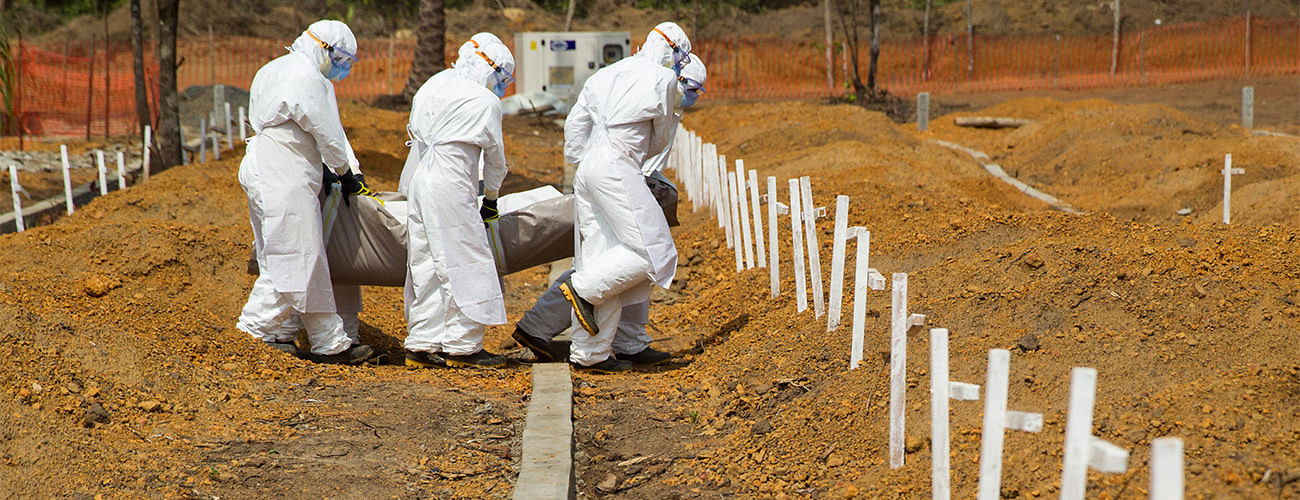A burial team carries the body of a suspected Ebola victim to a grave in a new cemetery at Disco Hill, Liberia, January 26, 2015. (UN Photo/Martine Perret)
The outbreak of the Ebola virus disease in West Africa from 2014 to 2015 underscored the fragility of public health services in countries emerging from protracted conflict, as well as the link between governance and health. In both Sierra Leone and Liberia, war had seriously undermined the health sector. Ebola arrived as the large-scale postwar international presence was downsizing and the responsibility for healthcare was shifting to the governments. Both governments had developed comprehensive health policies and plans, including devolution of health service delivery, but these were not fully implemented in practice. As a result, they were unprepared to address the Ebola crisis.
In this report, authors Edward Mulbah and Charles Silver explore the response to the Ebola crisis in Sierra Leone and Liberia, respectively. They both begin by examining the state of healthcare governance prior to the outbreak, then look into how health service providers, policymakers, communities, and volunteers grappled with the challenges the outbreak posed. Based on their analysis, the authors identify a number of lessons emerging from the response to the crisis in both countries:
- Local engagement is critical: In both countries, the involvement of local actors who understood the local context and were trusted by their communities was crucial to eventually containing the outbreak.
- Emergency measures can be effective but can also have negative consequences: The bold containment measures that both governments adopted helped contain Ebola but could have been better implemented.
- Top-down approaches are insufficient, and inclusivity is necessary: The shift from a top-down approach to greater involvement of state and non-state actors, including civil society groups and traditional leaders, facilitated prevention, control, and containment.








